How To Turn Off The Gas And Water To Your House
Today it’s all about how to turn off the gas and water to your house. A couple of years ago I happened to go out to our attached garage to get a loaf of bread out of the freezer. Well, we had water running off the shelf that held our 8-year-old water heater. I mean like a small river.
I was surprised, and I’m sure most of you would be too. In some disasters the issue may not be water that is rushing from the gas water heater, it may be the gas due to a bent or broken gas line. So, I want to challenge everyone to find their water and gas turn-off valves, today, just in case.
Here’s the deal, I have neighbors call ME to ask how to shut off the water line to their house. It’s been because their water heater has gone out, or they read where I suggested they consider turning off the water when they leave their home for a few days.
Let’s start with turning off your water. I hope this picture helps you. You turn the handle either horizontal or vertical depending on the direction of the pipe. In the picture shown, the valve is running parallel to the direction of the pipe, so the water is still turned on.
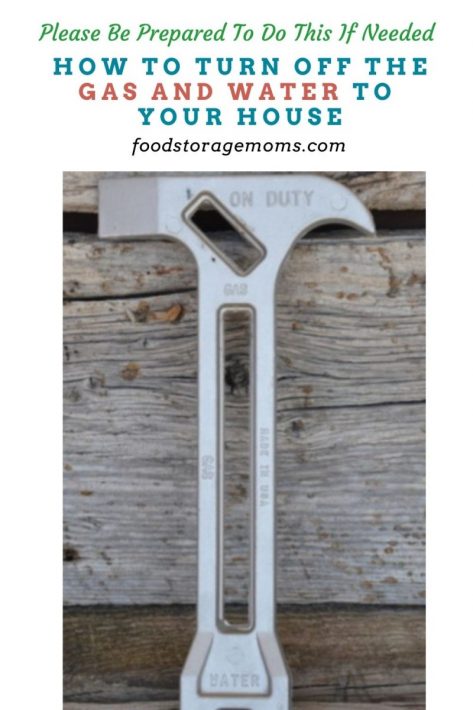
How To Turn Off The Water To Your House
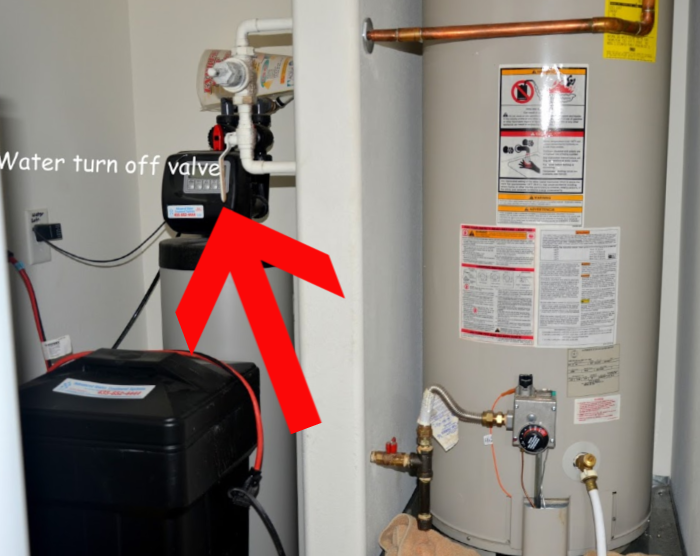
We all need to know how to turn the water off in our houses, as well as outside our homes. I had a cute neighbor who was a plumber by trade and he told me once, “I wish people would turn the water lines off when they go out of town even for 3 or 4 days.”
He said, “If people only knew how much damage water can do to their house if it springs a significant leak while they are gone. They would for sure turn off the water inside the house whenever leaving to go on a weekend or long vacation.”
He also mentioned that if nothing else, “they need turn off their hot and cold water valves attached to their washing machine.” This isn’t as safe as the whole house valve being turned off, but it is an option to protect at least a section of the house if you are going to leave for an extended period of time.
I’m confident my neighbors would have called me if they saw water running down the driveway from under the garage door when our water heater started to leak. I’m just glad I was home and not out of town. I used so many towels to mop up the water, as you can only imagine.
Learn Where To Turn Off Your Water Heater Valve
Since we knew where the water leak was, he also showed us how to turn the water heater valve off at the top of the water heater to STOP more water from going into the leaky water heater.
It made me think about what would happen if we had a disruption in our city water lines, and thus, no hot water. We at least had cold water for 48 hours. We can live with cold water for a few days. Boy, do we take these water heaters for granted!
The water valve shown above turns off the water to the whole house. My plumber told us we could shut off just the hot water by turning a valve on the top right water inlet pipe above the heater (not shown, but discussed above). Once the new heater was installed, he turned the valve back on.
We had already turned off the gas line to the water heater once we knew the heater was not functioning properly. You can see the red gas valve on the bottom left side of the heater in the picture above.
Yours may be somewhat different. I know many of you have electric water heaters, so the gas line issue doesn’t apply.
But if the heating element goes out in that electric water heater, or if the unit starts leaking water out of the bottom as mine did, you’ll still need to turn off the water source.
Be aware that most all homes also have the main water valve outside their home so the water supplying the property, including the sprinkler system, can be shut off. Of course, the sprinklers have their own main valve, along with the valves controlling each section, so you can just turn those off separately.
But the main water valve basically shuts down the source of water coming onto your property. It’s not too often this main valve needs to be shut off, but it’s good to know where it is and how to shut it down.
My water leak was related to the water heater. You may have to deal with leaks at other locations in your home, such as a toilet, kitchen or bathroom sink, the laundry room, shower or bathtub, or even a “wet bar” where there’s a small sink area in a den or family room so drinks can be served. Some people will also have a washtub facility in the garage to help clean up after a project.
With all these possible sources for water leaks, it sure pays to know how to shut the water off, either at the outside main, inside main, or at the plumbing fixture itself. A leak anywhere in the house can cause untold damage with having to replace sheetrock, carpet, wood floors, furniture, or boxed items left on the floor.
Most of us get caught up in the notion that a major disaster is necessary to prompt us to take cautionary action, but as shown by my water heater incident, leaks can happen anywhere in the home, and at any time.
One other thing to consider. Usually, the property owner is responsible if the main water line from the street to the home breaks. This can happen when the ground settles, putting undue pressure on the line.
It can also happen during an earthquake. Check with your insurance group to see what it would cost for coverage if the line breaks and causes damage to your yard, home, or neighboring property.
Please take a minute today to see where to turn the water off to your house. Not tomorrow, today. Please be prepared for the unexpected.
How To Turn The Gas Off
Here’s a picture of how to turn the gas off at your house. Be aware that your gas meter and related valve may look a little different. You might be wondering why you’d ever have to shut off the gas in the first place.
Most homes in the US have natural gas, a large propane tank, or heating oil so they can operate a furnace, water heater, kitchen stove, or clothes dryer. Some homes have a mixture of electrical or gas-powered appliances, so it’s good to know how to turn off the gas if needed.
Just like the examples of fixtures for water, most of the appliances are required by building codes to have a valve between the main gas line in the walls of the home and the appliance itself.
These valves are used if you need to repair or replace the appliance if you happen to smell gas in a room, or you’ve been notified by authorities or the gas utility that a prudent move would be to shut off all gas appliances due to a suspected gas leak in the neighborhood.
Of course, one solution would be to shut off the main valve, but that has some major ramifications that we’ll discuss below.
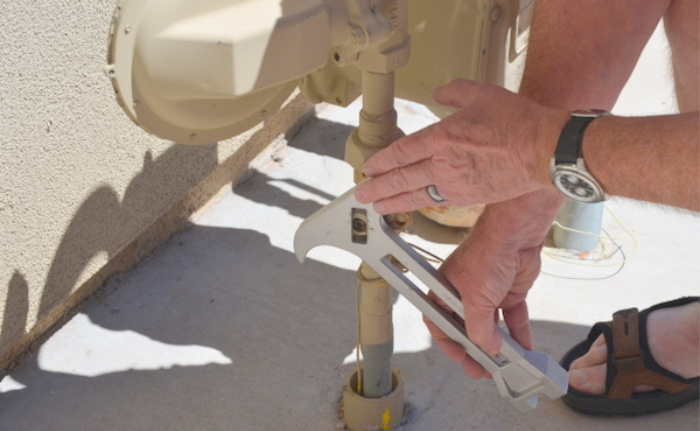
I consider myself to be somewhat “handy” when it comes to many home projects. We have a large tool chest with a bunch of different hand tools that we can use to fix things. Some people tend to be intimidated when it comes to deciding which tool works best for any particular project. A crescent wrench could be used to turn off the gas valve, but there is another option I’d like to discuss.
Here is a tool every family should consider having in order to turn off their gas line. Please know, I am not telling you to turn off your gas line unless you feel you are in imminent danger and you can’t contact the gas company.
You can sometimes cause more problems if you turn off your gas and then must have the gas company come and turn it back on. I’m just asking you to be prepared with a tool that you can use if you have an emergency.
One of my readers, Ted, issued the following warning to me in response to my suggestion that we may have to turn off our gas:
TED: Warning, Warning, Warning
Turning off the gas to your house on the street is important, but turning it back on again is a different thing. It is best to have an official technician from the gas company turn it back on.
The problem is that part of the gas meter system is a 4-inch disc-shaped object in the gas pipe near the meter. This disc contains a thin membrane that changes the 30 pounds of gas pressure from the street to about 6 pounds of gas pressure in the house. If you turn the gas meter on in one fast turn it is possible to rupture this membrane and you get 30 pounds of gas pressure inside of the house which can have dire consequences.
There is a careful way to turn the gas back on just as the gas company technician would do it but it is a slow process involving turning all of the gas valves off inside the house appliances and observing the second hand on the gas meter as you turn the valve on very slowly to make sure no gas is flowing inside the house. Then the membrane is not ruptured. Then turn each appliance’s gas on including lighting the pilot light according to each appliance’s procedure.
How do I turn on the various appliances that were shut off?
When it comes time to get the gas appliances up and running again it can prove to be a little tricky, depending on the type of appliance, the make, and model. If you still have the owner’s operation manual it would be wise to refer to it when starting the appliance again.
Some gas appliances have a “pilot light” that needs to be lit. The newer models often have an electric “ignitor” that ignites the gas when the appliance is turned on.
Our gas water heater has a button you push down while putting a match or other lighting source next to the gas line at the bottom of the heater. The key here is to follow the instructions from the manual, those that are printed on the side of the appliance, or get some professional help if you are having difficulty figuring things out. Gas is nothing to take lightly or fool with if you are not familiar with how a particular unit works. If in doubt, get some expert help.
Final Word
Here’s the deal, please show your family members how to turn off the water to your house. If they are older, show them where the gas line valves are. Let’s be prepared before we need to be. May God bless this world, Linda
P.S. Please check your carbon monoxide and smoke alarms at least annually. We always put brand new batteries in ours on New Years Day, it’s just a tradition we’ve had for years. Change them out if they are too old, or replace their batteries if that’s all that’s needed.

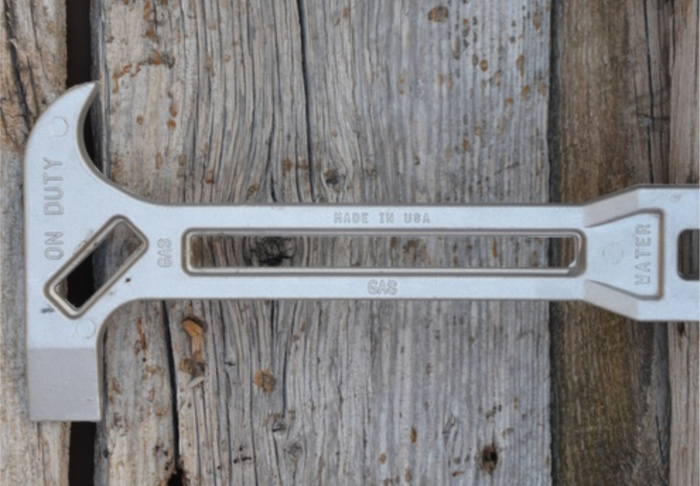


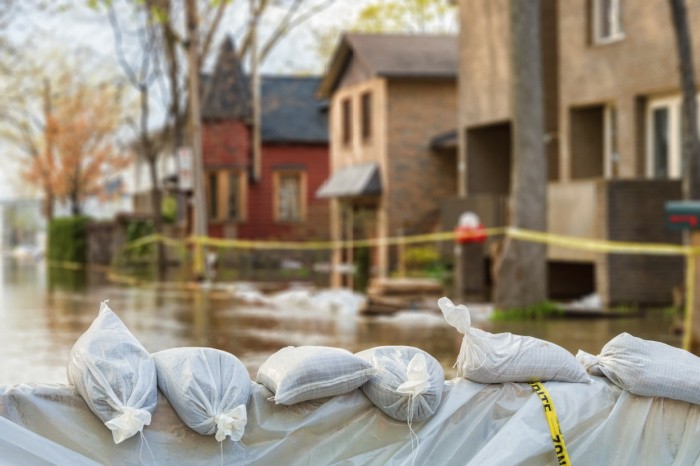
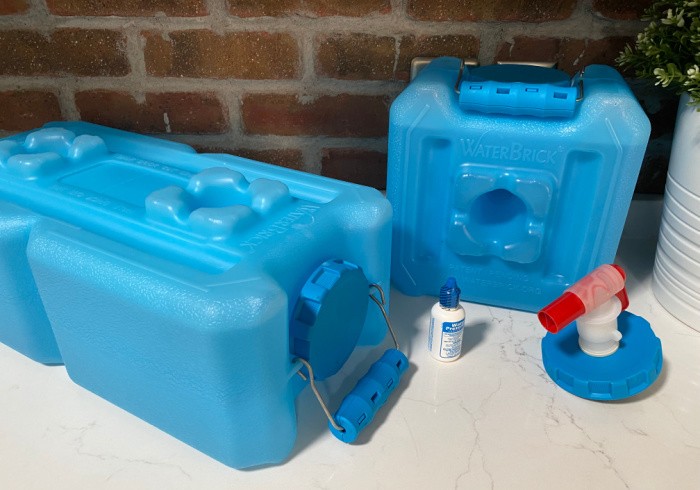
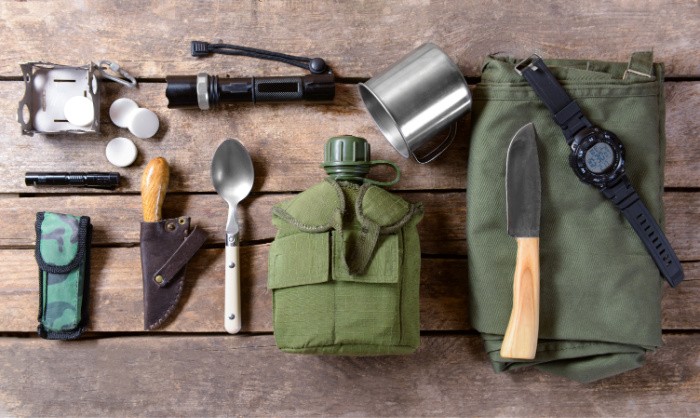


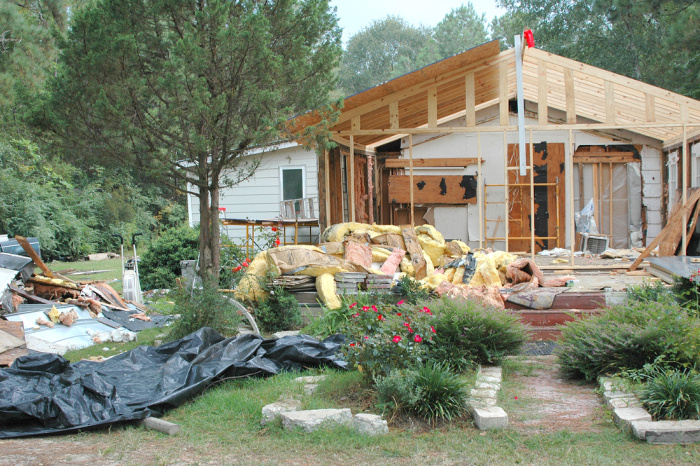

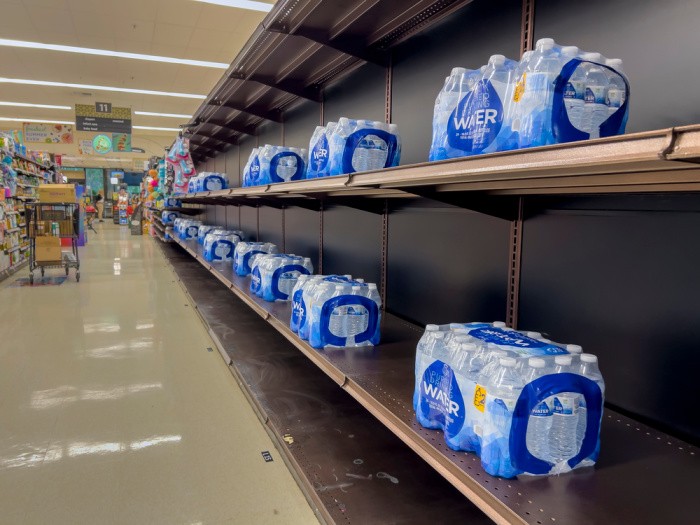



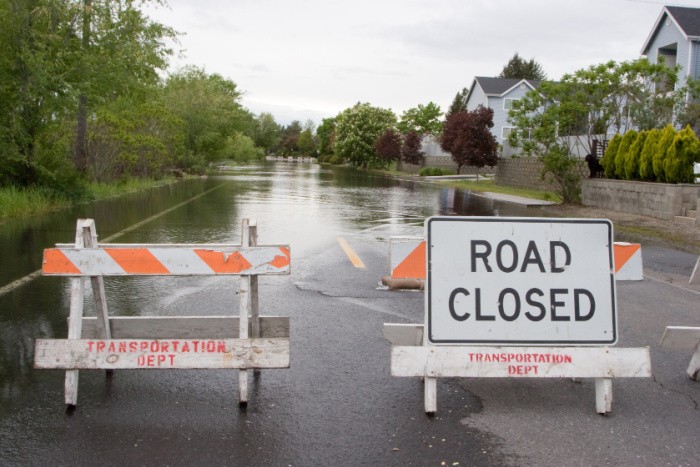

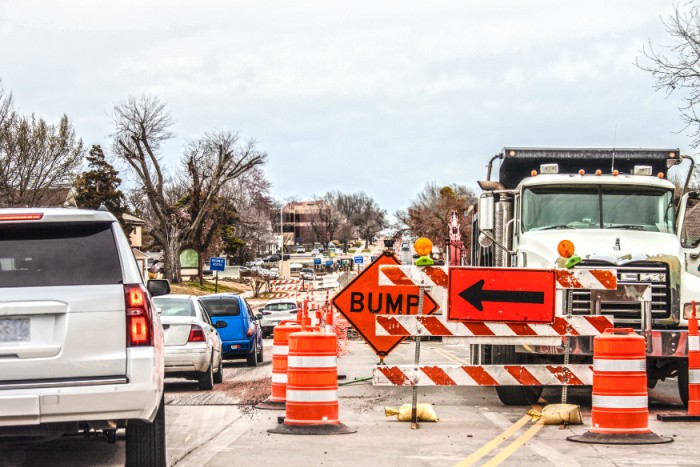


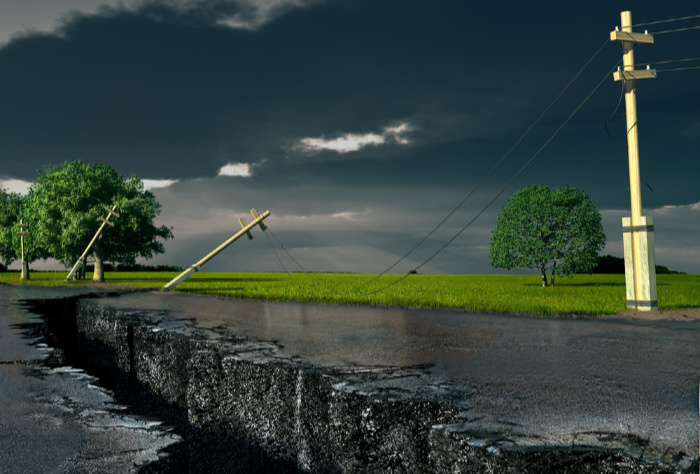
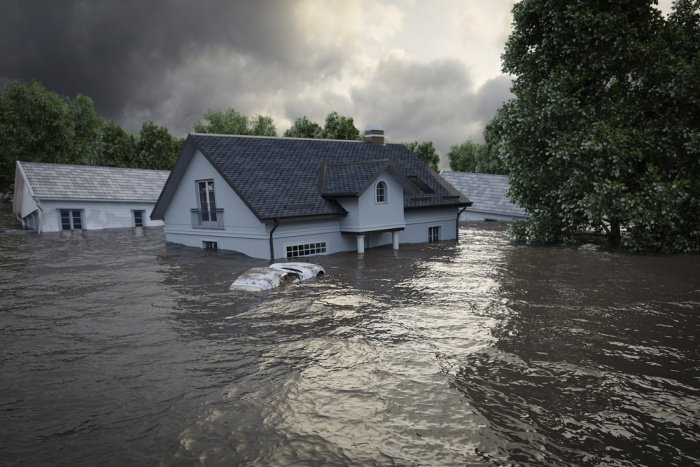


Timely article
My sons hot water heater thermocouple went out. I get the part and go over to help him. He goes out to shut the gas off. Several minutes go by and he don’t come back so I go to check on him. Turns out his value was buried in the dirt and we had to dig it out. Then it was so froze up that I had to use a cheater bar. Just for reference I’m 6’ 230 and lift daily. My point on this is go out now and find this stuff then actually try it because not only did this happen but the inside shut off valve was already broken from the prior owner unbeknownst to us.
My water shut off tool is zip tied to my chain link fence right by it. You don’t even notice it.
I’m gonna have to look at these multi tools you got posted for me and my kids places.
Matt, I can relate to your son’s problem from when I had my old house (a fixer upper). When I told my dad I was moving into a house built in 1884, he told me the first thing I needed to do was learn the mechanicals! Boy was he correct! The water shut-off valve was in a hole in the basement floor. The breaker box was in a dark corner where there wasn’t a light for 10 feet. The gas shutoff was in yet another dark corner…yep, all mechanicals in the basement. Lmao, but it was ‘such a joy’ to simply flip a breaker when a short occurred. I kept a flashlight on a hook on basement door. I considered myself lucky that the previous person had changed the electric box to breaker switches, rather than the old glass ones! That’s what one of my neighbors still had!
My first house had glass ones and we changed over so I sure know where your coming from lol
OH my gosh Matt, YIKES!!! Great tip on the zip tie to the chain-link fence! This is another reason we all need to know where to turn off the gas and water!! Thanks for sharing! Linda
Linda, this is a great article! I can think of too many times my family averted disaster just because I taught my sons and grandson the ‘mechanicals’ of our home. The oldest was 21 when I built our home, younger son was 4, grandson was 2. (I have a modular, no basement, but I was the general contractor for it, which saved about $60g but that’s another story…) Because I was the GC, but not always around, I showed my oldest exactly how the propane lineage worked, how to turn off electricity for whole house (and, yes, how to turn it off the electricity at the pole), how to turn off well pump as well as turn offs for each water line. He said he felt almost overwhelmed. He was dang glad he knew all this when the gas water heater got installed, turned on by plumber, then the guy left. Suddenly black smoke billowed out from the mechanicals room! Son knew how to handle everything! Plumber had forgotten to switch the heater from natural gas to propane! (It’s just a little tiny part on the gas inlet.) My son quickly shut off the main electric in the house, shut off the propane going to water heater, then went outside, turned off the big electric at pole, turned off the main line for propane tank. He no longer felt I’d overdone my lessons.
So, I don’t know how much different people’s systems are, but one thing about a gas leak is that most times, a fire or explosion happens due to an electrical spark. In my case, all major mechanicals are near each other: gas, water, and electric. So knowing how to shut down electricity is just as important as the other 2. Lol, thanks to my teaching, all we had to do was air out that part of house with fans, then I put on the little conversion thingee. Could this have caused a fire? Heck yea! Yep, I had a chat with the plumber. Long story but it sure showed my son the importance of ‘knowing’ about the basics. Together, we taught our other boys about these same things by the time they were each 8! Then, would go over stuff often during their early years. These guys are now 18, 20 and 37, but I don’t worry when I leave home on biz trips. Lol, over the years, they’ve also learned the joys of septic and well maintenance…it truly amazes me when homeowners don’t know anything about the True Basics of our good living: gas, electric and water. Keep up the education, Linda!
Hi Wendy, wow, I love hearing all the things you taught your kids and grandkids! We must teach them these skills! Thank goodness your son knew what to do, God was watching over him. Great comment! Linda
Warning, warning, warning
Turning off the gas to your house at the street is important, but turning it back on again is a different thing. It is best to have an official technician from the gas company turn it back on.
The problem is that part of the gas meter system is a 4 inch disc shaped object in the gas pipe near the meter. This disc contains a thin membrane that changes the 30 pounds of gas pressure from the street to about 6 pounds of gas pressure in the house. I f you turn the gas meter on in one fast turn it is possible to rupture this membrane and you get 30 pounds of gas pressure inside of the house which can have dire consequences.
There is a careful way to turn the gas back on just as the gas company technician would do it but it is a slow process involving turning all of the gas valves off inside the house appliances and observing the second hand on the gas meter as you turn the valve on very slowly to make sure no gas is flowing inside the house. Then the membrane is not ruptured. Then turn each appliance’s gas on including lighting the pilot light according to each appliance’s procedure.
Hi Ted, thank you for your great comment! You may have noticed I said “call the gas company” to turn it back on. I’m adding your comment to my post!!! Thank you from the bottom of my heart! Linda
Linda, as always you are right on target. I must take this to my FB friends and spread the word. I had no idea so I am grateful for your knowledge, especially now that my husband has passed.
Love you to the moon and back my sweet friend.
Vivian
Cincinnati Ohio
Hi Vivian, I’m sorry to hear about your husband’s passing. Hugs from Utah!! You know some things seem so simple but they need to be shown where to turn off the water and gas. Hugs to you my sweet friend!! Linda
I have Propane and my delivery driver was nice enough to show me how to turn it off. I am going to ask him to refresh me again since it has been a year or more since he showed me. My plumber showed me how to turn the water off at the meter
and my electric is shut off with a flip of a switch.
Vivian, so sorry for your loss, I to was faced with that as my husband passed some time ago but I learned and the people are all friendly and willing to help show me what to do.
Hi June, good idea about the propane instructions. It feels so good to know how to turn “stuff” off when we need to. People really are willing to help one another. Linda